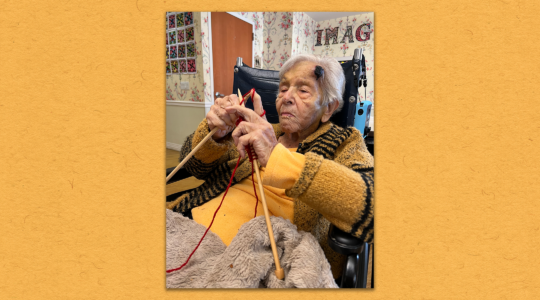In a first, Israel’s ambassador to the United Nations, Danny Danon, last week co-sponsored a Saudi resolution.
Two days later, Israel’s military chief was interviewed by a London-based Saudi-owned news site in which he said Israel was ready to share “intelligence information” with Saudi Arabia.
On Sunday, Israeli Energy Minister Yuval Steinitz confirmed what has long been an open secret — that Israel has had ongoing ties with Saudi Arabia.
“We have ties that are indeed partly covert with many Muslim and Arab countries, and usually [we are] the party that is not ashamed,” said Steinitz. “It’s the other side that is interested in keeping the ties quiet. With us, usually, there is no problem, but we respect the other side’s wish, when ties are developing, whether it’s with Saudi Arabia or with other Arab countries or other Muslim countries, and there is much more …[but] we keep it secret.”
“We have ties that are indeed partly covert with many Muslim and Arab countries, and usually [we are] the party that is not ashamed…”
What isn’t a secret is that the prime motivation for closer Israeli-Saudi connections is common concern about Iran, which represents a danger to both countries and much of the region.
Although most analysts say it is Israel that has been gradually lifting the veil on the secret ties, the fact that a Saudi-owned website interviewed Israel’s military chief was equally historic. But on the whole, the Saudis have been very cautious in what they say publicly about their ties to Israel and that is unlikely to change anytime soon.
“The Saudis are right now getting secretly most of what they want, which is some military and intelligence exchanges,” said Elliott Abrams, a senior fellow at the Council on Foreign Relations and former deputy national security adviser in the administration of George W. Bush, where he handled Middle East policy. “It’s of no advantage to them to make anything public, and it would be a disadvantage because they would be attacked by opponents of their regime who will say they are colluding with Zionists.”
Abrams stressed that Israel has to be “careful not to push beyond what the Saudis can tolerate.”
Thus, it was acceptable in 2015 for retired Saudi Gen. Anwar Eshki to meet publicly at the Council on Foreign Relations in Washington with Dore Gold, then incoming director-general of Israel’s Foreign Ministry. But Abrams stressed there have been no public Israeli meetings with current Saudi officials.
There were media reports recently that Saudi Crown Prince Mohammad bin Salman had made a secret trip to Israel to confer with Israeli officials. But Malcolm Hoenlein, executive vice chairman of the Conference of Presidents of Major American Jewish Organizations, dismissed the notion.
“Don’t believe all the reports,” he said flatly.
Gold said that at that meeting in 2015 he and Eshki “jointly trashed the Iran [nuclear] agreement.”
Asked about the growing ties between Israel and the Saudis, Gold explained that there is a “growing realization that Israel has joint interests with many Sunni Arab states” in their opposition to Iran and its many forces.
“When we see the Iranians deploy rockets and missiles in Yemen and use Houthis to fire at Riyadh, it is reminiscent of when Iran supplied Hezbollah with missiles that it fired at northern Israel,” Gold said.
He was referring to the Nov. 4 firing of a ballistic missile by Shiite Houthi rebels that was intercepted by the Saudis over northeast Riyadh using a U.S.-made Patriot missile.
“The Iranians seek to build a land-bridge of influence from the Persian Gulf to the Mediterranean.”
That missile firing has led to stepped up anti-Iran rhetoric by the Saudis, who called the attack an act of war by Iran. Iran quickly denied it provided the missile or had anything to do with the attack. But at an emergency meeting last Sunday of the Arab League requested by Saudi Arabia, the League took the extraordinary step of labeling Hezbollah a terror organization and announced plans to spell out to the U.N. Security Council their objections to Iran arming the Houthis.
Danon, Israel’s U.N. ambassador, suggested that Israel’s interactions with the Saudis grew out of their joint opposition to Iran.
“There is grave danger emanating from Iran,” he told The Jewish Week in an email. “The Iranians seek to build a land-bridge of influence from the Persian Gulf to the Mediterranean. They support terrorism on our borders, instability in Syria and throughout the region. At the same time, when Israel and the Arab world agree about the danger of this Iranian threat, there are also opportunities.”
The same day as the Houthi missile attack, Lebanese Prime Minister Saad Hariri unexpectedly resigned his post. He and his family had flown to Saudi Arabia the day before. In his resignation statement, Hariri alluded to reports of an assassination plot against him and blamed Hezbollah for taking over control of the country at the behest of Iran.
The move came just as the U.S. was imposing new sanctions on Hezbollah, which it considers a terrorist organization. In the days that followed, Hezbollah claimed that the Saudis were trying to get Israel to launch a war against it. But Hezbollah leader Sayyed Hassan Nasrallah said last Friday that a war with Israel was unlikely, and Gerald Steinberg, a political science professor at Bar-Ilan University, said there is “no rational scenario for initiating a war with Hezbollah now. Israel’s interests are better served by waiting for Hezbollah’s influence to wane. Hariri’s actions are designed to weaken Hezbollah because he is saying Hezbollah is illegitimate, and there is no sense in him saying he runs the country.”
Steinberg noted that Israel has been asking the U.S. to halt its weapons shipments to the Lebanese army because they “end up with Hezbollah — and Hariri is giving evidence to that claim.”
Despite the growing Israeli-Saudi ties, the Saudis will not establish full diplomatic relations with Israel until there is a resolution to the Israeli-Palestinian conflict, according to Saudi Foreign Minister Adel Al-Jubeir.
In the meantime, the Trump administration has been urging both sides to take “mini steps” in that direction, according to Nimrod Novik, the former senior adviser on foreign policy to the late Israeli leader Shimon Peres and currently the Israel Fellow of the Israel Policy Forum.
He noted that this is a change from the Saudi’s peace initiative of 2002 in which Arab recognition of Israel was seen as the “trophy for Israel at the end of the road. … Now they understand that in order for Israelis to take that seriously, they need to see some front-loading of the promise. … They are signaling how far they are prepared to go once they see the first steps taken by Israel — but that has not happened yet.”
“The Trump administration seems to be doing a very good job in preparing a [peace] process that it plans to launch in four to six months.”
Novik said Israeli Prime Minister Benjamin Netanyahu repeatedly sought without success to get his cabinet to turn over to the Palestinians a small area of the West Bank over which Israel has almost exclusive control. He said that although one cabinet member has called for total annexation of that land, Netanyahu wanted to show that the land “is not off the table.”
“It was in my judgement an effort to accommodate the American prerequisite to start the process of reciprocal gestures,” Novik said.
“The Trump administration seems to be doing a very good job in preparing a [peace] process that it plans to launch in four to six months,” he said. “Circumstantial evidence suggests that one major element will be an energetic involvement of the [Arab] Quartet [Saudi Arabia, the United Arab Emirates, Bahrain and Egypt]. They expect to contribute to the process by convincing the Israelis that progress with the Palestinians will yield regional integration — that regional acceptance is not a mirage.”
Novik said a second major contribution from the Saudis came recently when they invited Palestinian President Mahmoud Abbas to Riyadh to speak about the peace plan.
“It is giving him a sort of political bullet-proof vest,” Novik said, explaining that the Arab Quartet could be expected to endorse different peace proposals and urge the Palestinians to agree.
“I just got back from the Gulf and the message is clear — they are ready to open up to Israel and eager to harness their security resources [with Israel’s] in confronting their common challenge — Iran,” Novik said. “But they were equally clear that the prerequisite is evidence of Israeli sincerity on the Palestinian front.”
The New York Jewish Week brings you the stories behind the headlines, keeping you connected to Jewish life in New York. Help sustain the reporting you trust by donating today.




